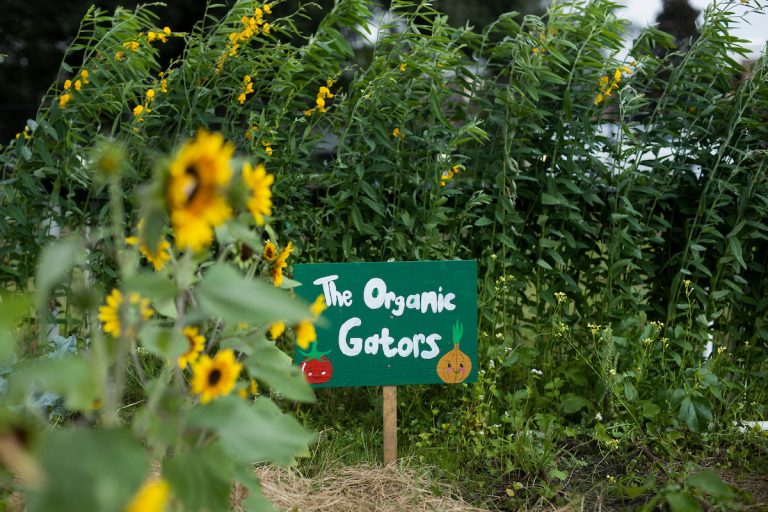
Consumer demand for organic fresh fruits and vegetables outweighs the availability of organic farms growing the food. In fact, while certified organic U.S. land for growing crops or livestock is increasing according to the U.S. Department of Agriculture, organic acreage is still less than 1% of American farmland.
University of Florida Institute of Food and Agricultural Sciences experts and stakeholders are inviting growers and investors to take a fresh look at organic farming.
“There is limited commercial organic farming in South Florida, and yet there is opportunity and interest,” said Xiaoying Li, assistant professor of horticulture vegetable crops at the University of Florida Institute of Food and Agricultural Sciences (UF/IFAS). “With most farms in the region being small-scale, many growers are already adopting organic practices, and new farmers are increasingly transitioning to organic production to meet local consumer demand.”
Organics Workshop
On the heels of a recently sold-out workshop, faculty and organizers at the UF/IFAS Tropical Research and Education Center, UF/IFAS Extension Miami-Dade County and the Florida Organic Growers highlighted the opportunities and challenges in this fast-growing sector, pointing to organics as a promising path for Florida agriculture and a chance to meet rising consumer demand.
The program featured experts and educators addressing both opportunities and practical tools for organic production.
Juan Carlos Rodriguez of the Florida Organic Growers opened the discussion, underscoring the resources available to farmers pursuing certification. From UF/IFAS, Extension agents Qingren Wang and Jeff Wasielewski outlined services that support vegetable and tropical fruit producers.
Research specialists also shared science-based strategies tailored to South Florida conditions. Jonathan Crane, UF/IFAS TREC associate director and tropical fruit specialist, discussed management strategies for organic fruit production. Li highlighted the role of cover crops in improving soil health and weed management. Dakshina ‘Dex’ Seal, an entomologist, presented non-insecticidal approaches to managing vegetable pests, offering preventive methods that align with organic practices. Rodriguez also returned to explain organic certification requirements and connect growers to further resources.
Other Insights
Four South Florida organic growers, representing farms producing yuca, tomatoes, sweet peppers, mushrooms, turmeric and tropical fruits, spoke about the creativity and persistence required to succeed in the organic industry. They pointed to challenges ranging from iguanas and weeds to crop rotations and soil health, while also sharing solutions like vermicompost teas, succession planting and diverse rotations that keep production steady and sustainable.
Leading the panel were:
- Margie Pikarsky of Bee Haven Farm addressed common pests and diseases in South Florida using organic methods. She suggested how using raised beds and crop rotations were required for her experience. Also, she suggested developing a crop rotation that works for you, and she addressed having enough land to separate and isolate the crops and diversity.
- Peter Fedele of Lion Farms Organic Gourmet Mushrooms explained how he placed his farm in a good balance by using vermicompost to let Mother Nature take over, by attracting good insects to eliminate the bad insects.
- Colleen Swingle of Regenerative Paradise Farms discussed planting for a variety of crops across her planting season. The method allowed for a lot of crop planning, with quick-cut greens, and timing it right.
- Marc Ellenby of LNB Grovestand is a wholesale grower known for tropical fruits, landscaping bamboo and turmeric in South Florida. He stressed soil health and the many breakthroughs currently available with crop protection as the organic method.
“The success of this workshop reflects the growing interest in organic practices and offers valuable momentum for farmers seeking to transition or expand into organic production,” said Li. “This is great news for growers and new farmers who are interested in joining the organic movement and strengthening sustainable agriculture in South Florida. It is also great news for Florida’s economic potential.”









